Accaparement des terres : nouvelles actions contre Bolloré
- Mediapart
- 30 April 2015
Cette mobilisation n’est que le dernier acte d’un interminable bras de fer entre le groupe Bolloré et le groupement d’association de paysans et de villageois.

Cette mobilisation n’est que le dernier acte d’un interminable bras de fer entre le groupe Bolloré et le groupement d’association de paysans et de villageois.

Irrigated farmland near the Niger River should be the breadbasket of Mali. But a lack of infrastructure, political instability, climate change and botched foreign investment deals mean the region isn't living up to its potential.
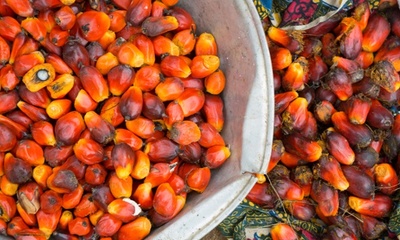
It’s right to hold destructive palm oil companies to account, but until we look to the organisations funding their activities we’re missing an important part of the puzzle.
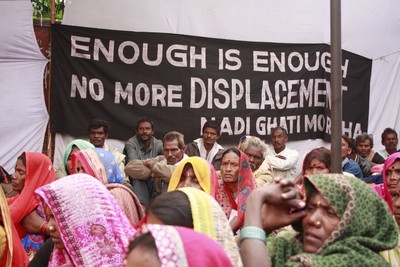
Legislative changes now sweeping across Asia threaten to displace millions of peasant families, undermine local food systems and increase violent conflicts over land. Already, just six percent of Asia's farm owners hold around 66% of its farmland.
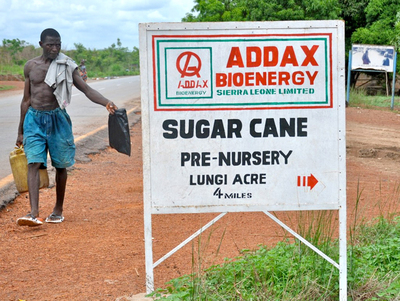
Le parlement européen a voté hier une directive qui selon certains observateurs marque un coup de frein au développement des biocarburants de première génération tels que l'éthanol produit à partir des céréales et du biodiesel issu d'oléagineux.

The movement launched in Cameroon by peasants deprived of their land by the oil palm plantations is spreading. Bolloré puts the responsibility for the conflict on the Belgian shareholders of Socfin.

Le mouvement lancé au Cameroun par les paysans privés de leurs terres par les plantations de palmiers à huile s’étend. Bolloré renvoie la responsabilité du conflit sur les actionnaires belges de la Socfin.
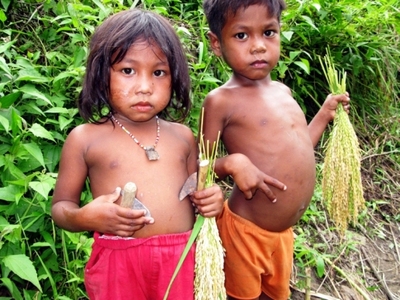
in Palawan, Philippines traditional farming like ‘slash-and-burn’(kaingin) is antagonized through restrictive legislation to pave way for increase land deals for industrial agriculture, especially oil palm and rubber.
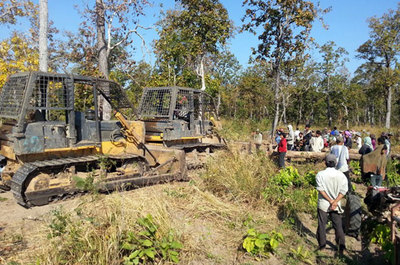
Around 50 villagers representing 90 families from Lor Peang village in Kampong Chhnang province presented petitions to the U.S. and European Union embassies among others, accusing KDC International—a company run by Chea Keng, wife of Cambodia’s Minister of Mines and Energy Suy Sem—of encroaching on their land.

Peasants of Malema, Nampula Province, criticised the government for the way the ProSavana project is being implemented at a public consultation on the project's master plan.
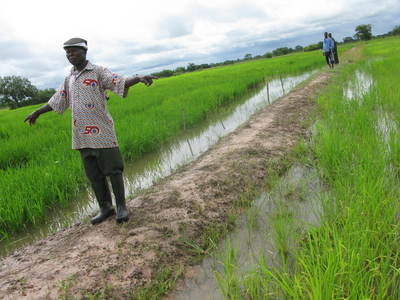
Roberto Jaconi of Brazil Agro-Business Group Limited told Ghana's Minister of Agriculture that his company was only farming 15% of the expected 3,500 hectares because of a slow response to requests for tax exemptions.
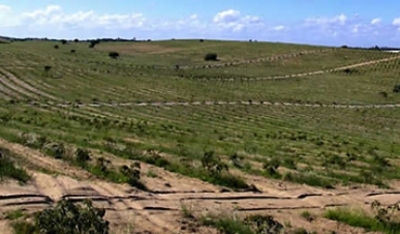
Desenvolvido em conjunto pelos governos moçambicano, brasileiro e japonês, o projeto ProSavana abrange 10,2 milhões de hectares de terra, no centro e norte do país. Missionários e ativistas temem consequências graves para a população local